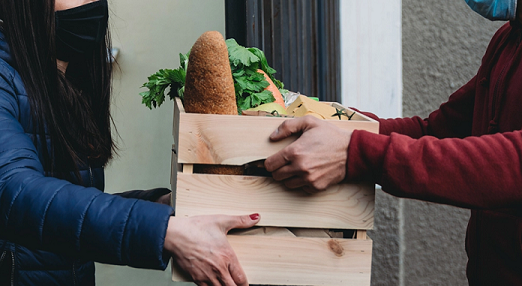VHA Food Security Office

Food Insecurity
Every day, countless Veterans struggle to provide adequate nutrition for themselves and their families. Every Veteran deserves to have secure access to food, and we are unwavering in our commitment to ensuring that no Veteran goes hungry. Our dedicated efforts are focused on addressing this critical issue because every life impact matters to us. Together, we strive to create a future where every Veteran can thrive with dignity and support. The Food Security Office defines “food insecurity” as “a lack of consistent access to enough food for an active, healthy life or a household-level economic and social condition of limited or uncertain access to adequate food.Food insecure individuals are more likely to have physical and mental health problems.
The VHA Food Security Office (FSO) supports Veteran comprehensive health and wellbeing by ensuring food security. Our Mission is to provide resources to VA healthcare systems through partnerships, data management, research, and education to support an interdisciplinary approach to ensuring Veteran food security and create an environment where all Veterans are food and nutrition secure.
The VA can help connect Veterans with resources to access nutritious, affordable, and culturally appropriate food.
Self-Screen
VA Services
Additional Resources
Self Screen
Consider these two questions:Within the past 12 months you worried whether your food would run out before we got money to buy more.
- Often true
- Sometimes true
- Never true
- Often true
- Sometimes true
- Never true
VA Services
Several VA teams work together to help Veterans access safe and stable food.
Primary Care
Primary Care doctors will ask questions about your food supply at home. If you report, you sometimes run out of food or money to buy enough food your doctor may suggest you meet with someone who can help. It is important to tell your doctor if you have trouble buying enough food so they can best treat your medical conditions.
Social Work
Your VA social worker is an important member of your healthcare team. Your social worker can provide education and connect you with VA and local resources. If you are eligible, they can help you with benefits and services that improve your ability to purchase safe and stable food.
Nutrition
Registered Dietitians are trained to provide nutrition therapy to prevent, improve and treat diseases. Your dietitian will provide tips for cooking low-cost meals or shopping on a budget. They will also help connect you with VA and local resources.
Additional Resources
Educational Handouts
Budget Friendly Meal Planning
Thrifty Meal Plan
Dollar Store Shopping
Low-Cost Eating Using Canned and Dry Foods
Nutrition Tips for Veterans Without a Home
Nutrition Guide During a Disaster or Flu Pandemic
Food Delivery Services
Food Resources
Feeding America: Need Help? Find Food*
Feeding America: Find Your Local Food Bank*
Resource Directory for Service members, Veterans, family members and caregivers*
The EveryONE project: free or reduced cost services*
Meals on Wheels America*
Hunger Hotline
211
USDA Resources*
SNAP State Directory Resources
Tips for Every Aisle
Save More at the Store
Special Supplemental Nutrition Program for Women, Infants, and Children (WIC)
Summer Nutrition Programs
U.S. Food Insecurity – 2023
- 18 million U.S. households were food insecure at some point (up 1 million from 2022).
- 5.1% of U.S. households experienced very low food security in 2023 (similar to 2022, but higher than 2021 and 2020).
- This severe food insecurity led to reduced food intake and disrupted eating patterns due to limited resources.
- In households with children, 8.9% experienced food insecurity.
Source: Rabbitt, M. P., Reed-Jones, M., Hales, L. J., & Burke, M. P. (2024). Household food security in the United States in 2023 (Report No. ERR-337). U.S. Department of Agriculture, Economic Research Service. https://doi.org/10.32747/2024.8583175.ers



















